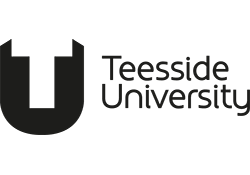GUARD
Generated Unauthentic Ad Recognition and Detection
Research and innovation

As generative AI transforms digital advertising, it brings both opportunity and risk. While AI enables new forms of creativity and engagement, it also raises growing concerns around authenticity, deepfakes and misinformation. To address these challenges, researchers at Teesside University developed GUARD (Generated Unauthentic Ad Recognition and Detection) - an innovative system designed to safeguard integrity, transparency, and public trust in digital media.
Challenge
The rise of AI-generated advertising content has outpaced traditional moderation and compliance methods. Regulators and platforms face increasing difficulty identifying synthetic media, deceptive claims and missing AI disclaimers. Manual review processes are slow and inconsistent, leaving advertisers exposed to reputational and regulatory risks. A scalable, reliable solution was needed to detect and verify AI-generated ads in real time.
Solution
The research team created GUARD, a pioneering detection system that combines machine learning and digital media forensics to identify unauthentic or AI-generated advertising content.
- GUARD analyses visual, auditory and textual features from ads using specialised AI models, fusing them through a meta-classifier to generate a probability score indicating synthetic origin.
- The system was trained on a unique dataset of authentic and AI-generated ads, ensuring robust, realistic performance.
- Beyond detection, GUARD incorporates regulatory compliance checks aligned with the Committee of Advertising Practice and Advertising Standards Authority guidelines, flagging missing AI disclaimers and supporting ethical advertising practices.
Impact
GUARD marks a major advancement in digital advertising compliance and trust. By automating complex detection tasks, it reduces the need for manual moderation, minimises the risk of regulatory penalties and strengthens transparency across the industry. The tool is now progressing through commercialisation with Innovate UK’s CyberASAP programme, paving the way for adoption by advertisers, regulators and digital platforms worldwide.
‘It’s incredibly rewarding to see my PhD work on phishing detection evolve into a real-world tool that tackles AI misuse in advertising. With GUARD, we're not just building a detector; we're fostering a new layer of accountability for advertisers and platforms, ensuring that innovation in AI goes hand-in-hand with ethical responsibility and public trust.’